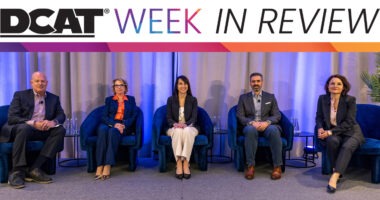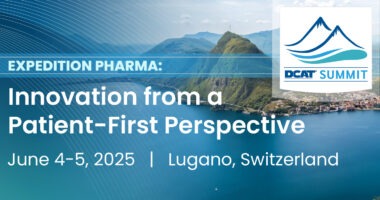The CDMO/CMO Report: Cell and Gene Therapies
Although a niche market, cell and gene therapy development and manufacturing continues to be an active area of investment by CDMOs/CMOs. Facing limited industry capacity, both pure-play CDMOs and bio/pharma companies with CDMO services continue to expand. A roundup of the latest expansions.
Key trend: in-house versus outsourcing
Representing a niche but growing market on a product basis, both bio/pharma companies and CDMOs continue to invest in development and manufacturing capabilities for cell and gene therapies. With limited capacity for these new modalities on an industry basis, both large and small CDMOs continue to invest in development and manufacturing capacity, but a key question is what is the near-term outlook for CDMOs in this area.
A recent report, The Cell & Gene Therapies Market Outlook, by Industry Standards Research (ISR), a provider of primary market research for the bio/pharmaceutical industry, shows some interesting findings as it relates to outsourcing trends for cell and gene therapies. The research analyzed current and future outsourcing needs for cell and gene therapies of bio/pharma companies now and five years from now. Data was collected in the third quarter 2021 and included responses from 101 outsourcing decision-makers at biopharma companies who had responsibility for cell and/or gene therapies within the past 18 months. Many of these respondents are also members of the ISR Health Panel, a community of industry professionals that provides insight into drug development trends and outsourcing behavior.
The report showed that 44% of bio/pharma companies in this study outsource most or all of their activities for cell and gene therapy manufacturing, but that number is expected to drop by half over the next five years as sponsor companies invest in their own facilities. The high level of current outsourcing is reflective of sponsor companies either waiting to invest in in-house capabilities until products progress closer to commercialization or wait for planned investments in internal capacity to come on line. The level of outsourcing for cell and gene therapies is projected to decrease over the next five years as the internal capacity of sponsor companies come on line.
The ISR study also examined how many CDMOs of cell and gene therapies do bio/pharma companies now use and are projected to use over the next five years. The report points out that as more of these types of products are approved, more CDMOs will be required, particularly if product approvals are in multiple regions given the unique manufacturing requirements for cell and gene therapies and the need for local supply chains. The current average of CDMOs of cell and gene therapies that the bio/pharma companies in this study report that they now use is about three, and that number is expected to increase by one in the next five years.
CDMOs/CMOS of cell and gene therapies
CDMOs/CMOs of cell and gene therapies include the large companies as well as smaller CDMOs, both pure-play CDMOs and small biopharmaceutical companies providing CDMOs services in addition to in-house manufacturing for their own pipelines. Below are a roundup of recent expansions by both large and small CDMOs of cell and gene therapies.
Large CDMOs/CMOs proceed with expansions
Fujifilm Diosynth Biotechnologies. In October 2022, Fujifilm Diosynth Biotechnologies broke ground on a $300-million expansion of its biomanufacturing campus in College Station, Texas, to double its advanced therapy and vaccine-manufacturing capacity in the US. The expansion will add a new cGMP production facility and add approximately 138,000 square feet to the existing 300,000-square-foot campus. The expansion provides space for multiple 500-L and 2,000-L bioreactors and associated purification equipment using single-use, disposable-device technology. The expansion is slated to be operational by 2024.
Also, in 2022, Fujifilm acquired a cell-therapy manufacturing facility in Thousand Oaks, California, from Atara Biotherapeutics, a South San Francisco, California-based biopharmaceutical company, for $100 million. The facility can produce both clinical and commercial cell therapies, including allogeneic T-cell and CAR T immunotherapies. Fujifilm Diosynth is also expanding its viral-vector and gene-therapy offerings in Darlington, UK, with process development laboratories and manufacturing capabilities for early-stage gene therapies. The process development laboratories are operational with manufacturing services started in the spring of 2022.
In addition, in December 2021, the company announced plans to invest £400 million ($533 million) to expand its site in Billingham, Teesside, UK, with the addition of a viral gene-therapy facility and a mammalian cell-culture facility. The new facilities are expected to be operational by late 2023. The investment is part of a JPY 90 billion ($797 million) global capital investment package initially outlined by the company in June 2021.
Samsung Biologics. In January 2022, Samsung Biologics announced plans to start construction of a new manufacturing facility for multi-modal products, including cell and gene therapies and vaccines using mRNA, plasmid DNA, and viral vectors, all at a single site. This facility will be in addition to the mRNA vaccine drug-substance manufacturing suite the company added to its existing facility in Songdo, South Korea.
Thermo Fisher Scientific. In August 2022, Thermo Fisher Scientific opened a new 300,000-square-foot viral vector manufacturing facility in Plainville, Massachusetts. The facility expands the company’s clinical and commercial viral vector capacity to six sites in the US and Europe. Also in 2022, the company expanded its cell-therapy network with the addition of a 44,000-square-foot cell-therapy development and cGMP manufacturing center at the Mission Bay campus of the University of California, San Francisco (UCSF) as part of strategic partnership with UCSF. These investments follow the opening of a 67,000-square-foot cGMP plasmid manufacturing facility in Carlsbad, California, in 2021 to support clinical and commercial needs for raw material and drug-substance development for cell and gene therapies and vaccines. Also, in 2021, Thermo Fisher added to its contract viral vector manufacturing services with the EUR 725 million ($875 million) acquisition of Henogen S.A., Novasep’s viral vector manufacturing business in Belgium.
These expansions build on the company’s continued investment in cell- and gene-therapy manufacturing facilities, including: (1) viral vector facilities in Cambridge, Lexington, and Plainville, Massachusetts, and Alachua, Florida; (2) a new cell-therapy manufacturing facility in Princeton, New Jersey; and, (3) a new dedicated cryocenter in Weil am Rhein, Germany, to provide specialized cryogenic and cold-chain supply-chain services to support clinical trials across Europe and globally.
Catalent. Earlier this year (2023), Catalent opened a new commercial-scale plasmid DNA (pDNA) manufacturing facility at its European Center of Excellence for Cell Therapies in Gosselies, Belgium. The facility contains over 12,000 square feet of development and manufacturing space across multiple cleanrooms for the dedicated production of cGMP-grade pDNA for clinical and commercial supply.
In December 2022, Catalent opened a cell-therapy commercial manufacturing facility, also located on the Gosselies campus. The facility houses 60,000 square feet of dedicated cell-therapy manufacturing space housing multi-product, segregated suites designed to support autologous and allogeneic cell-therapy manufacturing. Catalent’s Gosselies campus also includes a 67,000-square-foot clinical manufacturing facility.
In 2022, Catalent acquired from Erytech Pharma a commercial-scale cell-therapy manufacturing facility in Princeton, New Jersey, for $44.5 million. The 30,900-square-foot facility houses 16 production suites as well as laboratories for analytical, quality control, and microbiology testing. The site will become a strategic campus for development as well as for clinical- and commercial-scale manufacturing of cell therapies, and complements Catalent’s facilities around Baltimore, Maryland, where the company develops and manufactures viral vectors and pDNA, and Catalent’s existing US clinical-scale cell-therapy facility in Houston, Texas. Concurrent with the acquisition, Catalent agreed to lease an adjacent 23,000-square-foot building that could be used for additional laboratory or cGMP capabilities and another building on the site for potential future expansions.
In 2021, Catalent acquired RheinCell Therapeutics, a Langenfeld, Germany-based developer and manufacturer of human induced pluripotent stem cells, which became part of Catalent’s Cell & Gene Therapy business. In May 2021, Catalent acquired Promethera Biosciences’ cell-therapy manufacturing subsidiary, Hepatic Cell Therapy Support SA (HCTS), including its 32,400-square-foot facility in Gosselies, Belgium. The facility accommodates Catalent’s commercial-scale plasmid DNA manufacturing and is located on Catalent’s existing campus in Gosselies, adjacent to the Delphi Genetics building. Catalent announced the acquisition of Delphi Genetics in 2021, a spinoff from the Université libre de Bruxelles and a bioproduction CDMO with capabilities in pDNA development and cGMP manufacturing. Catalent gained its facilities in Gosselies, Belgium, with its $315-million acquisition of MaSTherCell, a provider of cell- and gene-therapy development and manufacturing services, in 2020.
In addition, in October 2021, Catalent announced a $230-million expansion project to add three commercial-scale viral-vector manufacturing suites and associated support facilities and services at its gene-therapy campus in Harmans, Maryland, which brings its total investment at the site to $360 million.
Charles River Laboratories. Charles River Laboratories, a Wilmington, Massachusetts-headquartered CRO/CDMO, announced in November (November 2022) an expansion of its cell-therapy CDMO facility in Memphis, Tennessee. The expanded space is suitable for clinical and commercial cell-therapy manufacturing, with an additional nine processing suites, adding to an existing 16 cleanrooms. The expansion comes after the company added to its capabilities for cell and gene therapies with the 2021 acquisitions of three CDMOs: Cognate BioServices, Cobra Biologics, and Vigene Biosciences.
Other CDMOs/CMOs expand
Several other CDMOs/CMOs are expanding development and manufacturing capacity for cell and gene therapies as outlined below.
AGC Biologics. AGC Biologics, a contract biologics manufacturer, added viral-vector suspension technology and capacity for the development and manufacturing of gene therapies at its campus in Longmont, Colorado. The viral-vector suspension expansion is a part of a more than $30-million investment by AGC Biologics in its Longmont campus. This expansion more than doubles the site’s viral vector capacity and came on line in the third quarter of 2022. AGC Biologics acquired the Longmont campus in August of 2021. It had previously acquired a cell- and gene-therapy site in Milan, Italy, from MolMed S.p.A., a Milan-based bio/pharmaceutical company in 2020.
Resilience. In 2022, National Resilience Inc., a CDMO of biologics and advanced therapies, formed a collaboration with the Mayo Clinic to build process and analytical development labs, quality control labs, and early-stage manufacturing support for cell therapies and other advanced modalities at the Mayo’s Center for Regenerative Medicine in Rochester, Minnesota. The labs will be for projects between Resilience and the Mayo Clinic and will also be available to other third parties.
In June 2022, Resilience formed a joint venture with the University of Texas MD Anderson Cancer Center in Houston, Texas, for a 60,000-square-foot cell-therapy manufacturing facility in the Texas Medical Center, focused on process and analytical development as well as early-phase and clinical-stage manufacturing.
Resilience is focused on five therapeutic modalities—biologics, vaccines, nucleic acids, and cell and gene therapies. Since its founding in 2020, the company has raised $2 billion, including $625 million in 2022.
Evotec. In 2022, Evotec, a Hamburg, Germany-based drug-discovery and development company, acquired Rigenerand Srl, a Medolla, Italy-based cell-therapy technology company, for EUR 23 million ($24 million). Rigenerand operates a cGMP cell-therapy manufacturing facility with 1,200 square meters of manufacturing space and quality control and development labs.
Recipharm. Led by CEO Marc Funk, formerly CEO of Lonza, who took over as CEO of Recipharm in 2021, Recipharm, a CDMO of drug substances and drug products, is increasing its position in biologics, with a particular focus on drug-substance manufacturing of advanced therapy products. In April 2022, Recipharm completed the acquisitions of Vibalogics, a CDMO of oncolytic viruses, viral vector vaccines, and viral vectors and gene therapies. It provides process and analytical development, manufacturing, testing, and fill–finish services from facilities in Cuxhaven, Germany, and Boxborough, Massachusetts. In addition, in February 2022, Recipharm acquired GenIbet, an Oeiras, Portugal-based biologics CDMO of recombinant proteins, cell and gene therapies, RNA, live microbial products, and vaccines. GenIbet was founded in 2006 as a spin-off of iBet Instituto de Biologia Experimental e Tecnológica, a private organization specializing in biotechnology research and bioprocess development.
Small CMDOs proceed with expansions
Several smaller CDMOs/CMOs are progressing new manufacturing facilities for cell and gene therapies as outlined below.
Andelyn Biosciences. In October 2022, Andelyn Biosciences, a Columbus, Ohio-based CDMO of cell and gene therapies, opened a new 200,0000-square-foot GMP clinical-scale and commercial-scale gene-therapy manufacturing facility in Columbus, Ohio. The facility can support gene-therapy viral vector production using various modalities, including adherent and suspension platform capacity of up to 8 X 2,000 L.
Andelyn was formed in 2020 from its spin-out from Nationwide Children’s Hospital in Columbus as a for-profit CDMO. In August 2022, it opened its Plasmid Production Core, which provides plasmid manufacturing for research-grade production and for investigational new drug-enabling toxicology production, along with adeno-associated virus vector cloning capabilities. It June 2022, it opened its Plasmid Development Center for research, process development, and analytical development.
Avid Bioservices. In June 2022, Avid Bioservices, a biologics CDMO, opened the first phase of its new 53,000-square-foot viral-vector manufacturing facility in Costa Mesa, California. The facility at full build-out will include capacity for adherent and suspension cultures. The second phase of the expansion is expected to become operational in mid-2023.
Batavia Biosciences. Batavia Biosciences, a Leiden, the Netherlands-based CDMO of viral vectors and vaccines, plans to extend its CDMO services portfolio, which now includes R&D and clinical manufacturing, to include commercial manufacturing. The company has finalized the design plans for a new 12,000-square-meter facility in Leiden, the Netherlands, to support late-stage clinical and commercial manufacturing of vaccines and viral vector-based gene therapies and immuno-oncology products. The facility is expected to be operational in the third quarter of 2024. The company is also adding 22,500 square feet to increase R&D activities for viral vector-based product development, including lentivirus, adeno-associated virus, adenovirus, and measles virus vectors. That expansion is slated to be finalized by June 2023.
Cellipont Bioservices. Cellipont Bioservices, a Poway, California-based CDMO of cell therapies, is progressing a new 76,000-square-foot commercial manufacturing facility for cell therapies and gene-modified cell therapies in The Woodlands, Texas. The facility will include manufacturing, process development, assay development, and testing capabilities redundant with Cellipont’s 26,000-square-foot facility in San Diego, California. The new facility will be commissioned in phases, with the first phase scheduled to begin operation in the first half of 2023.
CHA Medical & Bio Group. In 2022, CHA Medical & Bio Group, a Pangyo, South Korea-based healthcare enterprise, began construction of a facility in Pangyo, South Korea, for cell and gene therapy manufacturing facility and stem-cell biobanking. With an investment of more than $250 million, construction of the new 710,000-square-foot site is expected to be completed by the end of 2024. The space dedicated for cell and gene therapy will offer integrated CDMO services for mRNA, viral vectors, and plasmid DNA, and GMP production.
ElevateBio. In 2022, ElevateBio, a Waltham, Massachusetts-based CMO of cell and gene therapies, and the University of Pittsburgh formed a long-term strategic partnership under which ElevateBio will locate a $100-million process development and GMP manufacturing facility in Pittsburgh, Pennsylvania. Funding for the project is through a $100-million grant by the Richard King Mellon Foundation to the University of Pittsburgh to create the Pitt BioForge BioManufacturing Center. The facility will be equipped with enabling technologies, including gene editing, induced pluripotent stem cell, and cell, vector, and protein engineering capabilities.
Exothera. Exothera, a Brussels, Belgium-based CDMO of viral vectors for vaccines, cell therapies, and gene therapies, reports that Belgium’s Federal Agency for Medicines and Health Products granted a GMP certification for its facilities in Jumet, Belgium. The facilities are on the campus of Univercells, a provider of biomanufacturing technologies, and parent company of Exothera.
Exothera was founded in 2020. Initial operations began at two sites in Nivelles and Gosselies, Belgium, while renovation and construction of new offices and large process development and production areas took place in two buildings on the Univercells campus in Jumet. These facilities now provide a combined area of 8,600 square meters, with a recent expansion adding a GMP manufacturing area totaling 2,100 square meters.
Forecyte Bio. In January (January 2023), Forecyte Bio, a Frederick, Maryland-based CDMO of cell and gene therapies, opened a new GMP facility for the manufacturing of viral vectors, cell therapies, and plasmid DNA. The new facility has 17,000 square feet of space and consists of individual cleanroom suites for plasmid DNA, viral vectors, and cell therapies, as well as laboratory space for process development and quality control testing. The facility is equipped with bioreactors and purification apparatus.
Genezen. In 2022, Genezen, a CDMO specializing in lentiviral and retroviral vector manufacturing, completed construction of an early-phase clinical manufacturing facility in Indianapolis, Indiana. The expansion is part of an overall master plan for a 75,000-square-foot lentiviral and retroviral process development and cGMP vector production facility. Genezen also announced the next phase of the expansion, which will include additional process development, analytical development, and quality control labs as well as cell banking and vector manufacturing suites with an expanded warehouse. At the completion of the 75,000-square-foot facility, Genezen will increase delivery of lentiviral and retroviral vectors with adherent and suspension processes supporting both transient transfection and producer cell-line vector manufacturing platforms. Additionally, Genezen will expand host-cell expansion and host cell banking. The construction of Genezen’s expanded lentiviral and retroviral process development and analytical lab was completed in December 2021.
Matica Biotechnology. In 2022, Matica Biotechnology, a CDMO of CHA Biotech, a South Korea-based biopharmaceutical company, opened a new 45,000-square-foot facility in Texas dedicated to the production of viral vectors and cell-based products used in cell and gene therapies, vaccines, oncolytic therapies and other genetic medicines.
PackGene Biotech. PackGene Biotech, a CRO and CDMO of adeno-associated-viral-vector gene therapies, broke ground last month (February 2023) for a new 25,000-square-foot cGMP biomanufacturing and processing facility in Houston, Texas. The facility will include process and analytical laboratories, cGMP manufacturing cleanrooms and support areas, quality control laboratories, a warehouse, and office space. The company plans to nearly triple its Houston-area workforce to about 60 by the end of 2023 when the new facility is expected to be completed. Founded in Massachusetts, PackGene has additional operations in China (Guangzhou and Shanghai) and Boston.
ReiThera. Last November (November 2022), the Italian Medicines Agency (AIFA) granted ReiThera, a Rome, Italy-based CDMO of adeno-vectored vaccines, operational authorization to open its new EUR 15 million ($14.6 million) production area for the large-scale production of viral vectors for vaccines and gene therapies at its facility at Castel Romano Technopole, a research hub located in Rome, Italy. The facility can accommodate GMP production based on adenovirus, adeno-associated virus, and lentivirus starting from 50 liters up to a maximum of 3,000 liters. The facility has an area of 1,500 square meters and includes new bioreactors with scaled volume capacities of 200, 1,000 and 2,000 liters.
Vector BioMed. Vector BioMed, a Gaithersburg, Maryland-based biomanufacturing company specializing in the manufacture of lentiviral vectors, was launched in January 2023 with financing led by Viking Global Investors and Casdin Capital, two investment firms. The funds will support the company’s operations to provide lentiviral vectors for preclinical development, clinical trials, and commercialization.
VectorBuilder. VectorBuilder, a provider of products and services for gene therapies, is proceeding with a new R&D and manufacturing center in Guangzhou, China. The campus will include a CDMO facility with 30 production suites, designed for manufacturing of plasmids, mRNA, adeno-associated viruses, lentiviruses, cell lines and other types of viral and non-viral vectors. It will also offer CRO services. Additionally, the campus will house a research institute dedicated to developing new gene-delivery technologies. Construction of the facility is expected to cost $500 million and will be split into two phases over the next four years (as reported on April 11, 2022). There will be approximately 100,000 square meters of floor space capable of housing over 2,000 staff members.
VGXI. In October 2022, VGXI, a Conroe, Texas-based CDMO of nucleic acid-based biopharmaceuticals, including gene therapies, DNA vaccines, and RNA medicines, opened a new headquarters and manufacturing facility in Conroe, Texas. The new facility is 120,000 square feet, and provides manufacturing at fermentation scales from 10 L to 1500 L across multiple independent manufacturing trains. Dedicated areas are also available for personalized immunotherapy indications and GMP mRNA production.
Yapan Bio. In October 2022, Yapan Bio, a Hyderabad, India-based biologics CDMO, opened a new biologics process development facility at its site in Genome Valley, Hyderabad, India. With the expansion, Yapan enhanced its ability to support end-to-end development and manufacturing of RNA, DNA, and gene-therapy products starting from plasmids. The expansion includes three upstream suites (with Bio-Safety Level-2 containment), a downstream process development lab, an analytical development lab, and supporting infrastructure. The new labs will support manufacturing of clinical trial materials. Piramal Pharma Ltd., the parent company of Piramal Pharma Solutions, a CDMO of small-molecule active pharmaceutical ingredients and drug products, holds a minority equity stake in Yapan Bio.
Note: currency conversions as of time of expansion announcement.







